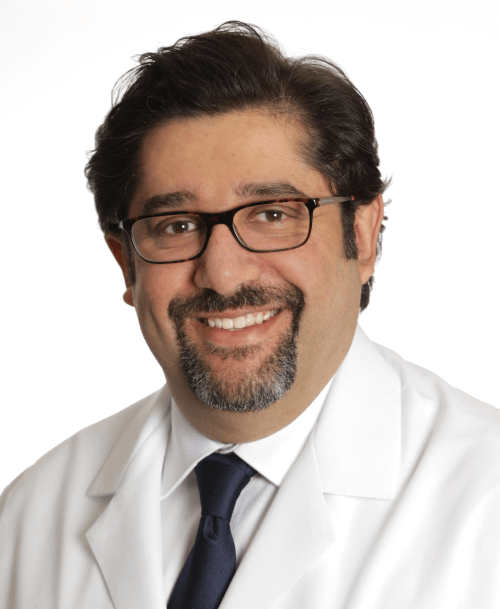A myofascial trigger point is a tender area in a muscle that causes generalized musculoskeletal pain when overstimulated. At Advanced Headache Center in NY and NJ, we take myofascial pain very seriously and focus on alleviating your symptoms and restoring function with a multimodal approach using trigger point injections. By targeting your myofascial trigger points directly with injections of a mix of numbing medication (lidocaine) and steroid, our interventional pain specialists treat pathologic tissue, address a pain generator and break the pain cycle with little to no side effects.
What Is a Trigger Point?
A trigger point is a localized area of muscle that is tight and tender to the touch. Trigger points are formed when muscle fibers become contracted and fail to relax, resulting in the formation of a knot. These knots can be found in various parts of the body, including the neck, shoulders, back, and hips. They can cause pain, stiffness, and limited range of motion.
When pressure is applied to a trigger point, it can elicit a pain response that may radiate to other areas of the body. This is known as referred pain and can be confusing for patients who experience pain in a different location than the trigger point itself.
What Causes Trigger Points?
Pain from trigger points can be caused by a variety of factors, including:
- Overuse of the affected tissue
- Injury
- Lack of exercise
- Vitamin deficiencies
- Sleep disturbances
- Joint disorders
- Poor posture
- Emotional stress
- Alignment imbalances
Not addressing your trigger point pain can result in it becoming chronic and leading to stiffness and restricted mobility. Stretching, massage, ice, and pain relievers will most likely not produce any positive results. In fact, stretching, rubbing, or massaging the affected muscle can sometimes make the symptoms worse in the long term if the trigger point is not released before working on the bigger areas of the muscle.
What are Trigger Point Injections?
A Trigger Point Injection (TPI) is an outpatient procedure designed to reduce or relieve the pain of trigger points. Trigger points are small, tender knots that can form in muscles or the fascia (the soft, stretchy connective tissue surrounding muscles and organs). A Trigger Point Injection is a non-surgical procedure for pain that only takes a few minutes to complete in the office.
In preparation for a Trigger Point Injection for pain, the patient is positioned comfortably. The physician will then press and pinch the skin to locate the targeted trigger point. Once identified, the physician cleanses the skin. A topical anesthetic may be used to numb the area temporarily.
The physician will carefully insert a needle into the trigger point, injecting an anesthetic mixture. This mixture causes the trigger point to relax. While it is common to feel relief after one trigger point injection, each patient is different, and your physician may recommend additional injections.
How Do Trigger Point Injections Work?
The medication used in trigger point injections can vary but typically includes a combination of a local anesthetic, such as lidocaine, and a corticosteroid to reduce inflammation. In some cases, saline or other medications may be used. The injection itself is performed after the specialist locates the trigger point using palpation, using ultrasound, or other imaging techniques.
What To Expect After Trigger Point Injections?
Some common side effects you may expect after receiving an injection include:
- Soreness
- Swelling
- Bruising at the injection site
These side effects are typically mild and resolve within a few days. Based on our experience, you may also experience some immediate relief of pain and increased mobility following the injection, though it may take a few days for the full effects of the medication to take effect.
You should avoid strenuous activity for at least 24 hours following the injection, as this can aggravate the injection site and delay the healing process. Also, subside from using heat or ice on the injection site for the first 24 hours, as this can interfere with the medication’s absorption.

Call us at 646-419-3105 or request more information.
If you are experiencing pain from knotted, hyperirritable spots in your muscles, trigger point injections may be one option to give you relief. Visit one of our offices in NY or NJ to learn more about treatment for myofascial pain and discover firsthand why so many of our patients consider us the best pain doctors specializing in providing safe and effective relief from pain in the musculoskeletal system.

Dr. Hosny is an Ivy League Trained, UCNS-accredited, board-certified headache specialist who offers the latest preventive and abortive treatments to provide safe and effective head pain relief. As an active member of prominent organizations and professional societies that advance headache science, education, and management, such as the National Headache Foundation, Dr. Hosny specializes in diagnosing and treating a wide range of head pain disorders, including tension headaches, migraines, and cluster headaches, to name a few.
Dr. Hosny's reputation for enhancing headache care quality through the use of the most effective and technologically advanced treatment options for persistent primary and secondary chronic headaches has been acknowledged by Castle Connolly and Healthgrades, where he has received over 200 positive reviews. Dr. Hosny is also recognized as a distinguished New York City physician and headache specialist by New York Magazine.
More about Dr. HosnyNew York, NY 10003
(646) 763-2222




